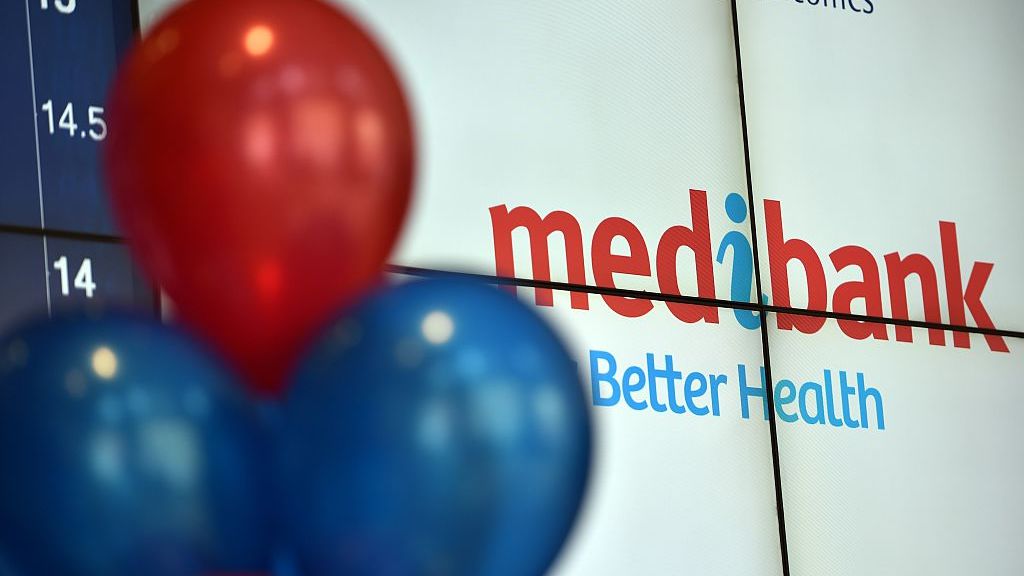Embattled Medibank faces 48-hour outage as cyber security upgrade begins
The Australian company has called in Microsoft experts as it deals with the fallout of a data breach that led to 9.7 million exposed customer records


Medibank plans to shut down its systems for a weekend while it carries out essential upgrades to its cyber security system, with help from Microsoft experts.
The company was hit by a cyber attack in October that saw data belonging to the company’s 9.7 million current and former customers exposed. Hackers are believed to have had access to a range of data, including passport numbers and health claims data.
RELATED RESOURCE

Getting board-level buy-in for security strategy
Why cyber security needs to be a board-level issue
The private healthcare insurance company said it plans to take systems belonging to Medibank, and its subsidiary ahm, temporarily offline from 08:30pm Friday 9 December, to undertake maintenance and strengthen its systems to boost its security. The company expects the systems to be back online by Sunday 11 December.
When the systems are down, customers will be unable to access Medibank or ahm services through the company’s website or app. Its retail stores and customer contact centre is also set to close on Saturday 10 December. However, health services like its 24/7 critical health support lines will remain open.
Medibank, one of Australia's largest private health insurance providers, said the work forms the next phase of its ongoing effort to safeguard its network. As part of this, Microsoft IT experts are flying in from across the Asia Pacific region and will join the company at its Melbourne headquarters. It isn’t clear what specific assistance the tech giant will provide.
Medibank said the work has required several weeks of preparation, given the complexity associated with taking systems offline entirely.
“While there has been no further suspicious activity detected inside our systems since 12 October 2022, as part of the next stage of our work we are undertaking maintenance across some of our systems to further strengthen security,” said the company.
Sign up today and you will receive a free copy of our Future Focus 2025 report - the leading guidance on AI, cybersecurity and other IT challenges as per 700+ senior executives
Medibank said it has boosted its security since the attack took place. This includes implementing two-factor authentication at its contact centres, aiming to increase the security for customers when they call for support.
The Australian company has also boosted its existing monitoring, added more forensics and detection capabilities across its systems and network, and has also improved its analytical support by hiring specialist third parties.
The company is continuing to analyse its customer data that was released by the hacker on the dark web. It has found that the number of stolen customer files hasn’t changed.
It will also begin contacting customers who have limited provider data stolen, including provider numbers, discharge data, and admission date.
“Like most of the data stolen, this data has been released in a raw form and is hard to understand,” said the company.
Australia has been rocked by a series of high profile cyber attacks in recent months, which has led the government to begin developing a new cyber security strategy. The new plan aims to help the country strengthen its government networks and critical infrastructure, and build sovereign cyber security capabilities. Home Affairs minister Claire O’Neil said on 8 December that the country will also look to create a 100-person team which will be focused on hunting down hackers.
Zach Marzouk is a former ITPro, CloudPro, and ChannelPro staff writer, covering topics like security, privacy, worker rights, and startups, primarily in the Asia Pacific and the US regions. Zach joined ITPro in 2017 where he was introduced to the world of B2B technology as a junior staff writer, before he returned to Argentina in 2018, working in communications and as a copywriter. In 2021, he made his way back to ITPro as a staff writer during the pandemic, before joining the world of freelance in 2022.
-
 Will autonomous robotics leap forward in 2026?
Will autonomous robotics leap forward in 2026?In-depth Connectivity and cost benefits remain barriers, despite breakthroughs in physical AI
-
 AWS and NTT Data team up to drive legacy IT modernization in Europe
AWS and NTT Data team up to drive legacy IT modernization in EuropeNews Partnership between AWS and NTT DATA aims to boost AWS European Sovereign Cloud capabilities
-
 Everything we know so far about the Nike data breach
Everything we know so far about the Nike data breachNews Hackers behind the WorldLeaks ransomware group claim to have accessed sensitive corporate data
-
 There’s a dangerous new ransomware variant on the block – and cyber experts warn it’s flying under the radar
There’s a dangerous new ransomware variant on the block – and cyber experts warn it’s flying under the radarNews The new DeadLock ransomware family is taking off in the wild, researchers warn
-
 Hacker offering US engineering firm data online after alleged breach
Hacker offering US engineering firm data online after alleged breachNews Data relating to Tampa Electric Company, Duke Energy Florida, and American Electric Power was allegedly stolen
-
 Cybersecurity experts face 20 years in prison following ransomware campaign
Cybersecurity experts face 20 years in prison following ransomware campaignTwo men used their tech expertise to carry out ALPHV BlackCat ransomware attacks
-
 15-year-old revealed as key player in Scattered LAPSUS$ Hunters
15-year-old revealed as key player in Scattered LAPSUS$ HuntersNews 'Rey' says he's trying to leave Scattered LAPSUS$ Hunters and is prepared to cooperate with law enforcement
-
 The Scattered Lapsus$ Hunters group is targeting Zendesk customers – here’s what you need to know
The Scattered Lapsus$ Hunters group is targeting Zendesk customers – here’s what you need to knowNews The group appears to be infecting support and help-desk personnel with remote access trojans and other forms of malware
-
 Impact of Asahi cyber attack laid bare as company confirms 1.5 million customers exposed
Impact of Asahi cyber attack laid bare as company confirms 1.5 million customers exposedNews No ransom has been paid, said president and group CEO Atsushi Katsuki, and the company is restoring its systems
-
 The US, UK, and Australia just imposed sanctions on a Russian cyber crime group – 'we are exposing their dark networks and going after those responsible'
The US, UK, and Australia just imposed sanctions on a Russian cyber crime group – 'we are exposing their dark networks and going after those responsible'News Media Land offers 'bulletproof' hosting services used for ransomware and DDoS attacks around the world
